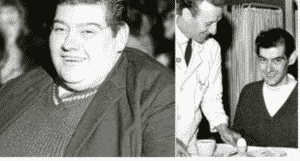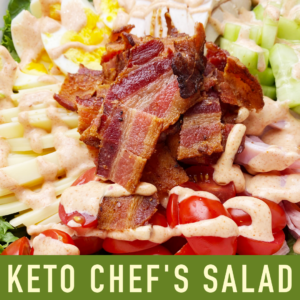Fasting, Fearmongering, and Freaky Results: Ketonia’s Personalized Insight To Fasting on the Ketogenic Diet
“Oh my god, that’s not healthy” gasped a confused yet well-intentioned girl. I had just finished telling her I was fasting, and therefore could not try her delicious-looking banana bread. This invited a skeptical look. A look that I have become very familiar with since starting the ketogenic diet in 2011. I’m sure her logic was catered around the idea that was instilled upon us at an early age as we were growing up. That logic being, if you stop eating you will eventually die- in short. Or, in long, if we cut back our nutrition we lose energy we obtain from food, which can cause more serious health problems. Therefore, we are taught at a young age that skipping meals has a negative impact on your body. However, what has been practically programmed into our brains at such a young age, has been theoretically incorrect.
To understand why she was wrong, let’s take an evolutionary look at fasting. First and foremost, before humans invented agriculture (roughly 10,000 years ago), we were what scientists call “hunter-gatherers.” Recent discoveries have pointed to the first-ever humans emerging just under 200,000 years ago. That discovery indicates that humans have been hunter-gatherers for roughly 95% of the history of our species. This history of inconsistent food availability has left a lasting impact on our genetics and our evolution. Humans evolved to thrive in a resource-scarce environment. Fasting induces a state of ‘cell autophagy’ in which the body evaluates cells and partitions the sub-optimal cells to be repurposed. Simply put, when your body stops obtaining calories externally, it looks for damaged cells to destroy and use as energy. Fasting also decreases insulin resistance, Increases growth hormone and melatonin production, and decreases cortisol- long term. Many people even find that fasting increases mental awareness. Evolutionarily, this makes a lot of sense, If your ancestors got sluggish when hungry, they became prey. However, if when they got hungry, their genetic makeup awarded them increased focus and awareness, they could catch a rabbit rather than sitting next to it in a predator’s stomach.
Ketonia Tip: Monitored strategic fasting can yield a wealth of benefits. However, it is possible to get yourself into some trouble without proper knowledge. Research is imperative to beginning any diet or dietary remedy such as fasting. Always consult with your doctor to discuss whether fasting (or another dietary approach) is correct and non-harmful to you. Individuals with diabetes, heart conditions, hormone regulation issues, or a history of eating disorders are those at the top of a reasonably long list of people who need to think thoroughly and consult with their doctors prior to starting a fast.
Now, let’s now differentiate between the two types of fasting.
Intermittent Fasting
I.F. or Intermittent Fasting is another way of saying time-restricted eating. My personal protocol is to skip breakfast and lunch and have my first meal as either a snack around 4 pm or hold off entirely until dinner around 6 pm. I find this makes my life easier in multiple ways. First and foremost, the easiest decisions are the ones you don’t have to make. Not having any options for breakfast because you’re not eating breakfast dramatically reduces the chance that you’ll grab a hash brown or sugary coffee while in “a rush.” Also, overeating typically isn’t a large area of concern when you aren’t eating. Some of you are probably thinking, “Oh cool, this guy measures efficiency by how much something helps him starve himself.” Let me clear that up, I don’t. Intermittent fasting, as previously stated, has physiological benefits as well as psychological. Changes in hormone levels as well as increased insulin sensitivity aid in body recomposition. An easy way to start this is to push breakfast back an hour and continue pushing it back by an hour at set intervals. An excellent place to start is pushing breakfast back 1 hour every two weeks. As with your diet if you cheat, if you show up to that morning meeting and they have omelets with chorizo, pepper jack, and pepper bacon, go ahead and attack. It’s best to imagine intermittent fasting, as more of a lifestyle alteration and not a restricting diet, from the standpoint of a marathon, not a sprint. Don’t be hard on yourself, and use your indiscretion as motivation to get back to work the next day. I.F. has been a godsend when it comes to trimming some of the toughest fat deposits and problem areas on my body. The final benefit is that when you break your fast after between 12-18+ hours, the food you eat will be some of the most satisfying you’ve ever had.
Prolonged Fasting
While I.F. is new and exciting, the concept of fasting predates even the bible. However, for me, nothing has garnered more audible gasps and quizzical looks than the statement “Yeah, I’m on hour 61 of what I plan on making a 96 hour fast.” People often stare with a look reminiscent of someone debating calling CPS on their neighbors who get drunk and fight with hockey sticks in the front yard over the last T.V. dinner. Fasting, however, is not only great for you; it can be fun. Ok maybe not enjoyable but there is absolutely an almost euphoric alteration of perception that is practically narcotic-like by the 4th or 5th day. Altered states aside, the main benefit of taking your shorter fast into the long term is the increase in cell autophagy. The longer you fast, the harder your body works at purging malignant and non-functioning cells. Another fun added benefit is that many find prolonged fasting is an excellent way to reduce excess skin. This finding is best exemplified by the longest medically supervised fast ever recorded. Angus Barbieri fasted for 382 days. Starting in June 1962 he sustained himself on tea, coffee, soda water, and vitamins for over a year losing 276 pounds. The remarkable thing about Angus’s fast is that after losing close to 300 pounds, he did not have the excess skin that often plagues those who sustain massive weight loss.
Some things to think about:
Electrolytes
Fasting can throw your electrolytes out of balance. Make sure to counter this by taking an electrolyte supplement. I personally love the liquid electrolytes from the guys at Keto-Beam. Their fulvic electrolyte supplement is my go-to after hot yoga, during a fast, or after a night of drinking. I’m not an affiliate, but after meeting Dan and the Keto-Beam team at KetoCon, I have become a huge fan of their products. I am also an avid fan of bone broth during fasts. It’s very low in calories and packed with nutrients that will keep you feeling at your prime all day.
Body Temperature
One thing that always surprises me during a fast is how quickly I get cold. I usually am a norse soul. I like my house at a frigid 68 and have been known to turn the heater off in the winter. (Full disclosure, I live in Houston. So, some of you might not technically consider 49 degrees Fahrenheit “winter,” but for us Texans, it is.) When fasting, I often find myself reaching for a jacket. Prepare for this. If you have decided to try fasting, anticipate chilly temperatures and bundle up.
Working Out
Often, it is said that you shouldn’t exercise during fasts. Personally, I still do. Again, be sure to consult a doctor prior to fasting, as I am not a trained medical professional and this is not medical advice. I do what works for me and my body. I do almost all of my workouts in the morning when fasting due to the hellish nature of 24-hour fitness at five o’clock. Many of my more muscle-bound friends scold me for the grave sin of not maximizing my gains by eating directly before and after my lift. My response: “Ehhh, ok.” If you are trying to bulk then fasted workouts are probably not the best move for your specific fitness goals. However, the question at hand is that if you’re trying to bulk, why have you read this far into an article on fasting in the first place? Go get you some Muscle-Ripped-Flexafreak-69000 and get back under the bar, swoleman. On a serious note, If you do elect to exercise during a fast, it is imperative that you listen to your body. You will be weaker and less able to control the weights, so be careful and start slow and light, gauging your capacity regularly- again, this is a marathon, not a sprint.
The Bottom Line
Only you and your doctor can make the call on whether fasting is the right decision for you and your health goals. This is a poorly masked way of me saying “I’m not a doctor, and this isn’t medical advice. If shit goes down, you are unequivocally on your own. So, always be sure to consult with your physician prior to making any health or diet changes.” Your weight will fluctuate heavily during fasts, especially prolonged ones. Don’t focus as much on the scale as on how you look in the mirror, and you will see what can only be described as freaky effective results.





